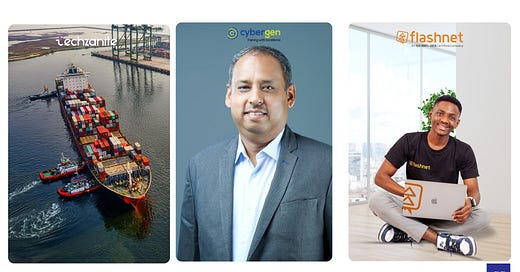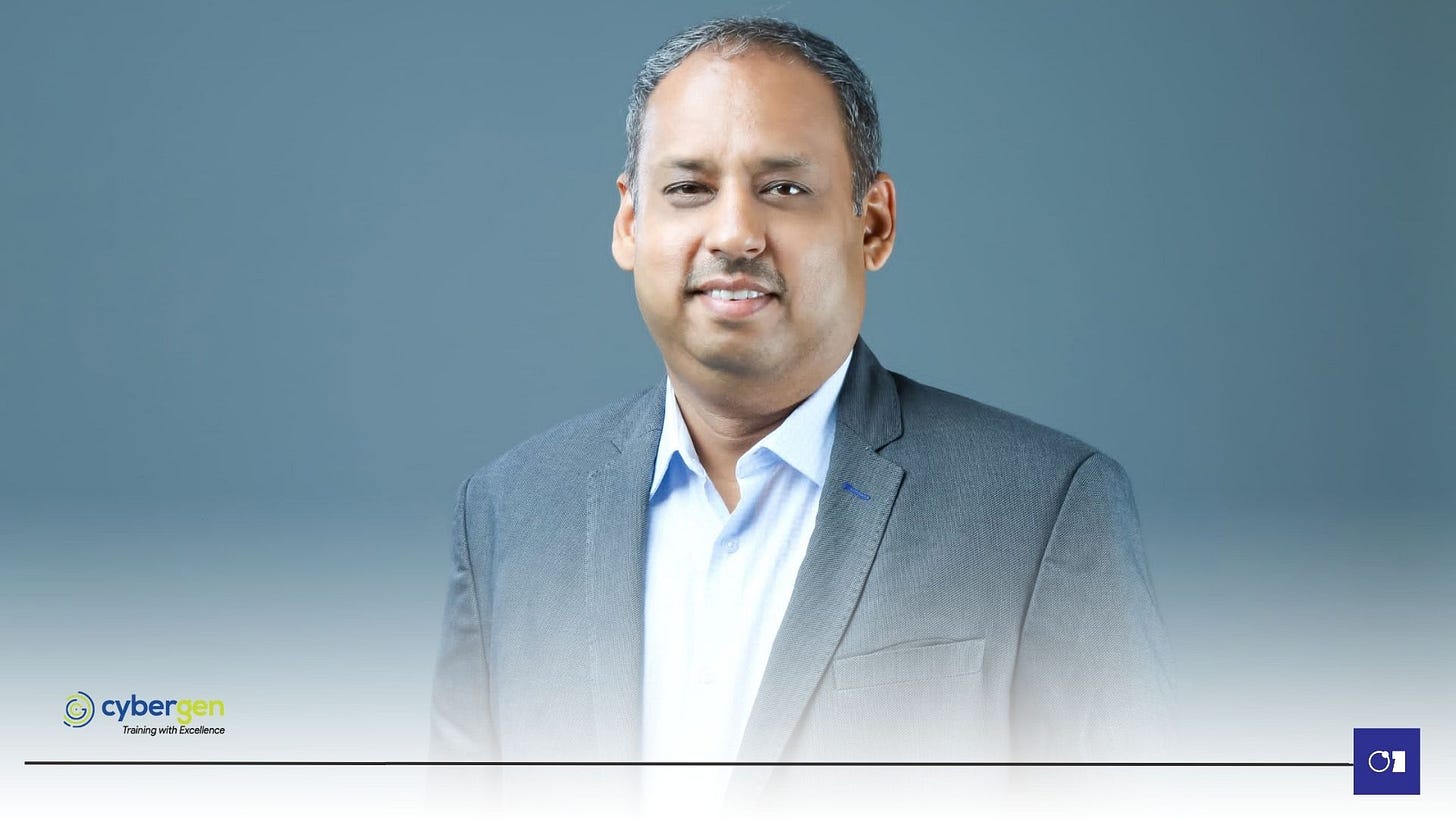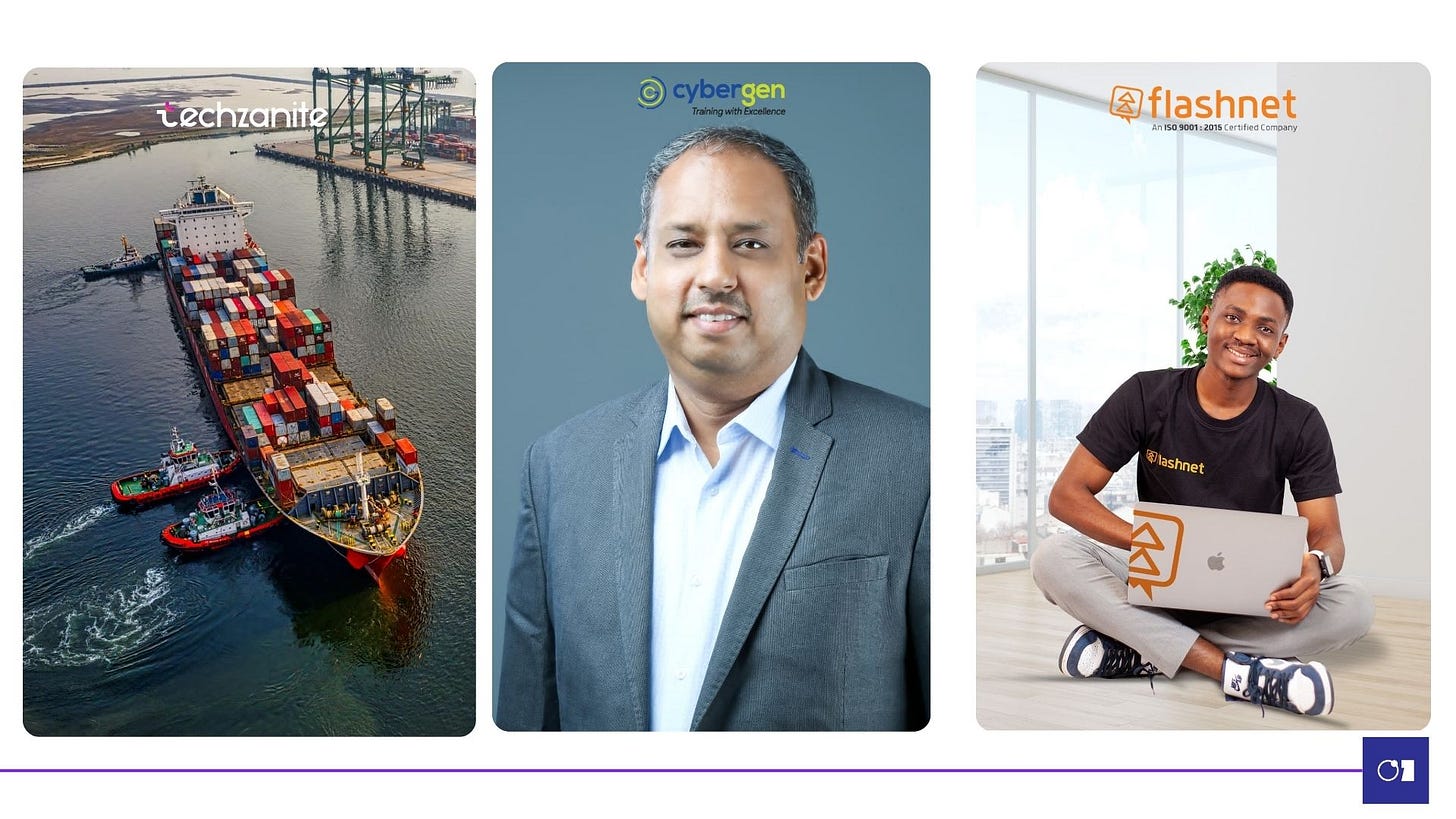We’re back with the week that was.
In this edition, we:
Feature Techzanite’s software for shipping and customs clearance companies
Break down Cybergen’s business storytelling masterclass
And uncover how Flashnet is helping make Tanzanian websites faster and safer
Rounding out our coverage, we spotlight four more tech updates from across Tanzania.
1. Techzanite Digitizes Tanzania’s Freight Forwarding Sector
First, some context.
Techzanite provides enterprise resource planning (ERP) software to over 30 Tanzanian clearing and forwarding companies.
The Dar es Salaam-based firm has gained steady client growth—organically—in a sector where most businesses still rely on paper documentation or basic spreadsheets for managing complex import-export operations.
The technology.
Techzanite’s cloud-based ERP system integrates six core business functions: sales, customer service, operations, customs documentation, accounting, and management information systems (MIS).
The platform scales from three to 200+ users with a software-as-a-service (SaaS) model that eliminates rigid pricing and upfront hardware costs.
It also maintains compliance with TRA and TPA regulations while supporting multi-branch operations across different locations.
“We are solving real problems for clearing agents who need digital solutions tailored to their specific business requirements,” Kege Mbaga, a customer success executive at Techzanite, told Atoms & Bits. “Our platform adapts to both small operators and large forwarding companies.”
Fact.
Tanzania’s ports handled 16.5 million tonnes of cargo and 621,584 shipping containers between May and November 2024. Both performance metrics increased by 3-6% compared to the same period in 2023.
What’s ahead?
Integration of the Tanzania Customs Integrated System (TANCIS) with the Tanzania Electronic Single Window System (TeSWS) has already reduced port turnaround time from 48 days to just 7 days.
Techzanite’s solutions align with this national push toward logistics efficiency and digitization.
2. “No Contrast, No Story” – Cybergen Delivers Fortune 500 Storytelling Techniques to Tanzanian Leaders
First, some context.
Cybergen is a consulting firm specializing in ICT solutions, training, and cybersecurity.
It recently hosted a well-attended virtual masterclass on business storytelling for Tanzanian executives and professionals.
The session was led by international consultant Hari Shankar PR, whose narrative frameworks have been implemented at Microsoft, Google, and KPMG to secure multimillion-dollar deals.
The ABCs.
Hari introduced three essential storytelling principles for business communication.
First, effective narratives engage emotions by strategically evoking hope or fear - bending but not breaking audience expectations.
Second, impactful presentations highlight meaningful contrast between current constraints and future possibilities, moving beyond simple problem-solution binaries.
Third, presenters must master “truth well said” - maintaining factual integrity while articulating information in memorable, compelling ways.
Participants learned practical methods for transforming numbers into narratives through techniques like ratio framing (i.e., saying “1 in 3 women” rather than “30% of women”) and personalizing data through individual stories that represent broader trends.
These frameworks address why technical experts with strong data often receive silent acknowledgment without action.
Fact.
Decision science research confirms that approximately 70% of business decisions are influenced by emotional rather than purely rational factors, despite what decision-makers themselves might believe about their thought processes.
What’s ahead?
Based on current market demands, Cybergen has prioritized several strategic programs for the coming months.
These include Security Operations Center Analyst (SOCA) training, Oracle Database Administration (ODA), Virtual Reality (VR) Training Development, and Scrum Master Certification.
With facilities in both Dar and Zanzibar, the company delivers these courses through flexible methods including onsite, premises-based, and virtual instruction.
Interested professionals and employers can call +255 767 880 040 or email training@cybergentraining.co.tz.
3. Flashnet Brings Global Website Security and Speed Services to Tanzania
First, some context.
Flashnet, a Dar-based IT company founded in 2011, has partnered with Cloudflare to provide website security and performance services to Tanzanian businesses.
This partnership makes Flashnet the official provider of Cloudflare's services in Tanzania, giving local companies access to the same website protection tools used by 19.3% of websites worldwide.
The collaboration.
Their agreement brings several practical benefits to Tanzanian enerprises, including protection against website attacks that can take sites offline, faster loading times for customers, and tools to block malicious bots.
These services run on Flashnet’s data centers and Cloudflare’s network of servers in 335 cities across 125 countries, which processes 55 million website requests per second and can defend against attacks as large as 5.6 terabits per second.
“This collaboration lets Tanzanian businesses deliver faster websites while protecting themselves from increasingly common cyber threats,” said a representative from Flashnet, which operates from PPF Tower on Ohio Street in Dar.
Fact.
For most Tanzanian companies, implementing enterprise-grade website security previously required expensive hardware purchases and specialized technical staff, creating barriers that left many businesses vulnerable to attacks.
What’s ahead?
Flashnet offers many other technology services for businesses beyond website protection. These include reliable internet connections, office WiFi networks, computer security, and tools that help teams work together online.
The company serves businesses across mainland Tanzania and Zanzibar, providing the technology solutions they need to succeed in today’s digital world.
develoPPP Ventures Hosts Mixer Ahead of May Funding Round
DEG Impulse, VC4A, and Ennovate Ventures recently organized an Investors Mixer in Dar es Salaam, connecting Tanzanian startups with investors and development partners.
The event followed due diligence visits to DeveloPPP’s Cohort 8 startups.
Applications for the Q2 2025 funding round open in May, offering €100,000 in catalytic financing to eligible startups across Kenya, Rwanda and Tanzania that demonstrate proof of concept and growth potential.
UDEEA Launches Robotics Workshop Series at UDSM
The University of Dar es Salaam Electrical Engineering Students Association (UDEEA) completed phase one of a technology skills workshop on March 30.
Students assembled robotic cars using Scratch programming, piloted drones with locally manufactured components, and built AI-powered websites.
Participants will now develop prototype solutions for community challenges, followed by a post-Easter commercialization workshop to transform ideas into market-ready innovations.
Tanzania’s First Swahili AI Model to Serve 200M Speakers
Sartify recently launched PAWA, a pioneering AI language model built specifically for Kiswahili.
The startup’s other product, TutorAI, is now used in Tanzanian schools to offer students personalized learning assistance for all subjects.
With thousands of current users, Sartify also enables businesses to build custom AI assistants without coding.
The team has already partnered with Mozilla and Hugging Face while seeking $750,000 to expand to additional African languages.
New Tech Cuts Emissions While Boosting Profits
Using AdBlue technology, Tanzanian logistics companies such as Suhara Group have reduced nitrogen oxide emissions by 95%.
The system converts pollutants into harmless nitrogen and water, while synthetic oils extend maintenance intervals from 12,000 to 25,000 kilometers.
Fleet modernization with Euro 4 and 5 engines has increased operational efficiency by 4%, with green transport investments showing 5-7 year returns through reduced fuel and maintenance expenses.







